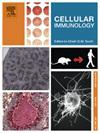Acetyl-CoA subcellular compartmentalization regulates T cell adaptation
IF 2.9
4区 医学
Q2 CELL BIOLOGY
引用次数: 0
Abstract
Upon activation, naïve T cells undergo rapid proliferation and differentiation, giving rise to clonally expanded populations specifically tailored for an effective immune response. To meet the heightened bioenergetic and biosynthetic demands associated with activation, T cells adapt and reprogram both their metabolism and transcriptome. Beyond this, T cells are also able to dynamically adapt to fluctuations in the microenvironmental nutrient levels. While the adaptability of T cells is a well-established hallmark of their functionality, the molecular mechanisms by which metabolic responses underpin this flexibility remain incompletely defined. Acetyl-CoA, with its role as a central metabolite in mitochondrial ATP production, and a substrate for nuclear histone acetylation reactions, emerges as a key player in a metabolic-epigenetic axis. Recent evidence indicates that enzymes responsible for generating acetyl-CoA can translocate to the nucleus, supporting sub-cellular local acetyl-CoA production. Here, we explore the impact of acetyl-CoA metabolism on T cell functionality within different subcellular compartments and highlight the potential for intervention in acetyl-CoA metabolic pathways in T cell-driven autoimmune diseases and cancers.
乙酰辅酶a亚细胞区隔化调节T细胞适应
激活后,naïve T细胞经历快速增殖和分化,产生专门为有效免疫反应量身定制的克隆扩增群体。为了满足与激活相关的更高的生物能量和生物合成需求,T细胞适应并重新编程其代谢和转录组。除此之外,T细胞还能够动态适应微环境营养水平的波动。虽然T细胞的适应性是其功能的一个公认的标志,但代谢反应支撑这种灵活性的分子机制仍然不完全确定。乙酰辅酶a作为线粒体ATP生成的中心代谢物和核组蛋白乙酰化反应的底物,在代谢-表观遗传轴中扮演着关键角色。最近的证据表明,负责生成乙酰辅酶a的酶可以转移到细胞核,支持亚细胞局部乙酰辅酶a的生产。在这里,我们探讨了乙酰辅酶a代谢对不同亚细胞区室内T细胞功能的影响,并强调了在T细胞驱动的自身免疫性疾病和癌症中干预乙酰辅酶a代谢途径的潜力。
本文章由计算机程序翻译,如有差异,请以英文原文为准。
求助全文
约1分钟内获得全文
求助全文
来源期刊

Cellular immunology
生物-免疫学
CiteScore
8.20
自引率
2.30%
发文量
102
审稿时长
30 days
期刊介绍:
Cellular Immunology publishes original investigations concerned with the immunological activities of cells in experimental or clinical situations. The scope of the journal encompasses the broad area of in vitro and in vivo studies of cellular immune responses. Purely clinical descriptive studies are not considered.
Research Areas include:
• Antigen receptor sites
• Autoimmunity
• Delayed-type hypersensitivity or cellular immunity
• Immunologic deficiency states and their reconstitution
• Immunologic surveillance and tumor immunity
• Immunomodulation
• Immunotherapy
• Lymphokines and cytokines
• Nonantibody immunity
• Parasite immunology
• Resistance to intracellular microbial and viral infection
• Thymus and lymphocyte immunobiology
• Transplantation immunology
• Tumor immunity.
 求助内容:
求助内容: 应助结果提醒方式:
应助结果提醒方式:


